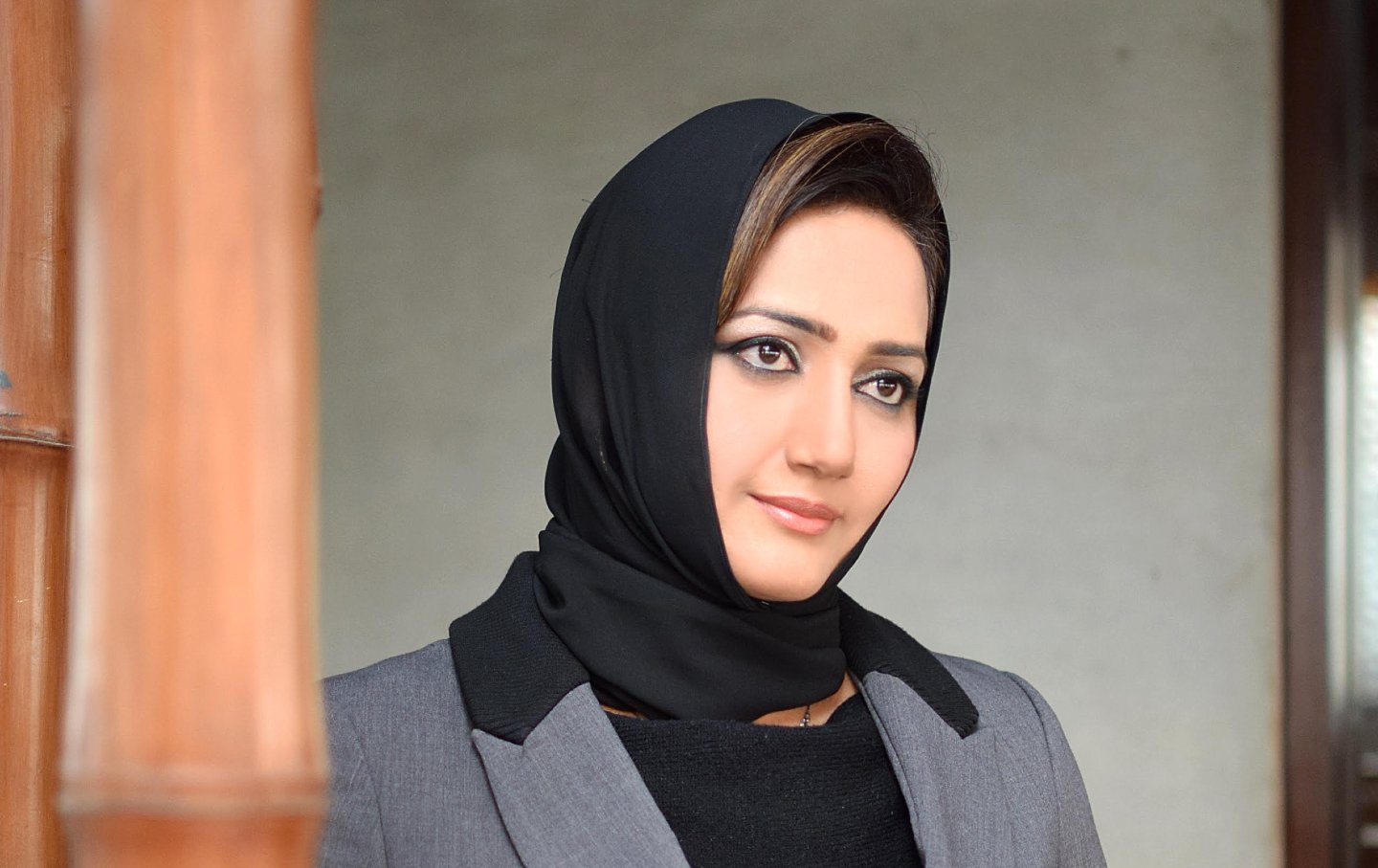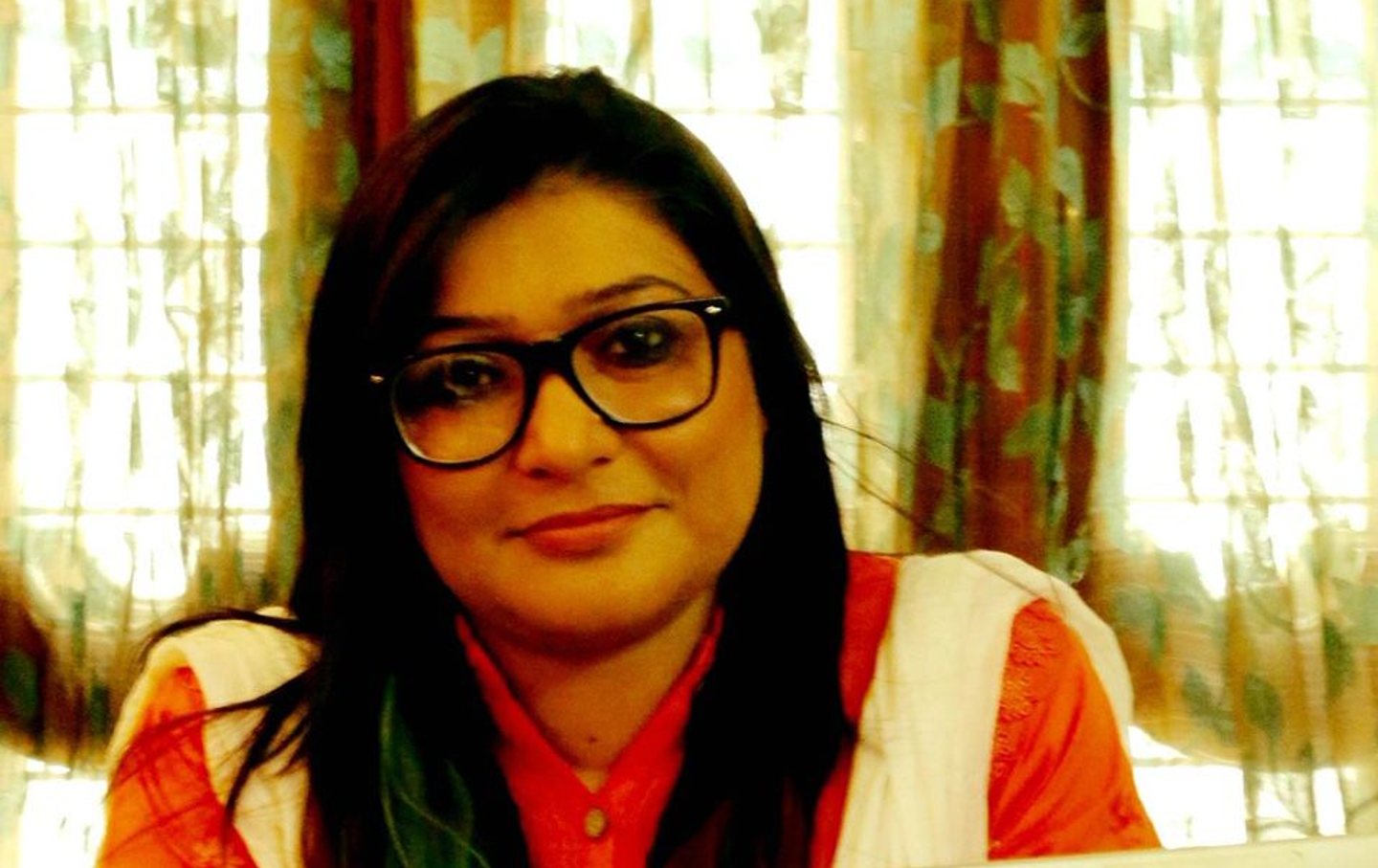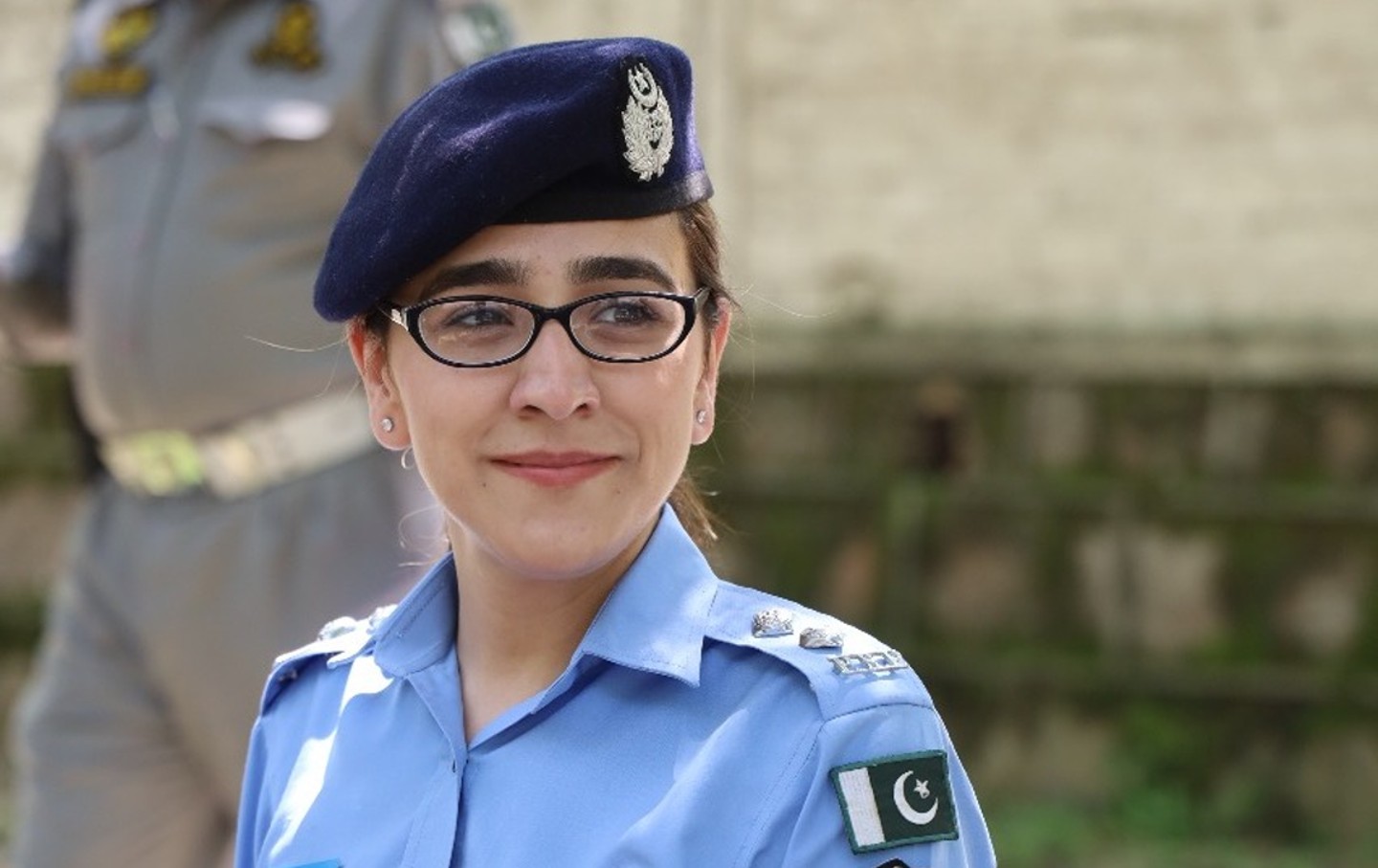“We live in a society where the most vulnerable demographic is women, and a single sentence can destroy our reputations,” says Shirazi. “It [the trolling] was part of an organized campaign to silence those voices that were speaking up about the manipulation of the 2018 election.”
Shirazi—a 20-year veteran of the media industry—is no stranger to threats or political pressure. Her reporting has taken her from Swat to Beirut and put her on the radar of any number of militant outfits, from ISIS and Lashkar-e-Jhangvi to the Pakistani Taliban, all of which have tried to stop her from speaking. “I’ve never been afraid of death; what used to scare me was insults. Now I’m not afraid of either.”

Instead of being cowed, Shirazi has continued to speak up for democracy and to hold the military-civilian rulership to account. “Truthfully, surrendering isn’t in my blood. There were many occasions when I asked myself if I shouldn’t just compromise but then I would also have to ask myself, ‘to what extent?’ The demand [from the hybrid regime] is to be completely blind and deaf and silent…and that was something I couldn’t accept.”
Popular
"swipe left below to view more authors"Swipe →
It is one of the peculiarities of Pakistan, a country among the most patriarchal in the world, that the struggle for civil liberties is being spearheaded by women. Indeed, there is a sense in which the reality of having to struggle against men in the public and private spheres has conditioned Pakistani women to resist oppression. Amber Rahim Shamsi, a journalist and political commentator based in Islamabad, says, “It is because of the mettle that women have developed that they are able to exude so much power.”
A fervent defender of freedom of expression, Shamsi came under intense pressure in June 2020 when she grilled former finance minister Asad Umar on the drastic increase in petrol prices presided over by his government. She says that while she was on her way home that night, she received a phone call from Col. Shafiq Malik of Inter Services Public Relations, who chastised her for asking too many “political” questions. “It’s unfortunate that saying certain names or revealing certain truths or doing certain stories has become an act of resistance,” says Shamsi, who was sacked from her job under mysterious circumstances at the end of August 2020. “Because if you’re not able to give the full picture to people in a democracy they don’t have the information they need to make those decisions.”
In the two months between that interview and her termination, Shamsi became a victim of the same sort of organized trolling that had earlier been used against Asma Shirazi. One of Shamsi’s former colleagues told The Nation that the PTI government was looking for an opportunity to target her and had organized the campaign as a form of revenge for her criticism. “Pakistan is a country where if a man rapes a woman, conservative elements find a way of blaming the victim,” he said. “They knew that by assassinating her character on social media, it would hurt her more than if they had done the same thing to a man.”
For Nighat Dad, who heads the Digital Rights Foundation, social media bullying is a legal problem. “Constitutional rights should translate to online spaces,” she tells The Nation. “The same mindset that harasses women on the street also harasses them online.” Nighat, who set up the cyber harassment help line in 2016, sees her fight to empower women in digital spaces as a wider attempt to “break the patriarchy.”
In 2005, a year after completing her law degree, she was forced into an arranged marriage with a man who refused to let her work. “My ex-husband told me that practicing the law was a profession for prostitutes,” she says. “Then when he found out I had secretly got my license to practice, he said, ‘Oh so you are a whore aren’t you?’”
Two years later, after an acrimonious divorce, she represented herself in a custody battle for her infant son and witnessed firsthand what she calls the “misogyny” of the courts. “I had to scream just to be heard,” says Nighat. “It was a place where female lawyers would be arguing and the men behind them would be laughing.”

Because her own struggles coincided with the explosion of smartphones and the proliferation of social media, Nighat decided to focus her attentions on making the Internet a safer space for women. The Digital Rights Foundation lobbies government on how to legislate for women to have greater access to information, notifies social media companies of threats being made on their platforms, and provides a help line for women to call in and share their grievances.
The issue of women’s digital rights is being discussed as part of a larger conversation about female empowerment. The emergence of groups like the Women’s Democratic Front—a socialist feminist grassroots organization founded in 2018—coupled with a recent spate of highly publicized attacks against women has ignited a culture war between reactionary and progressive elements in society. Tooba Syed, who organizes the Women’s Freedom Rally in Islamabad every March describes the resistance to this new wave of feminist activism as a form of societal censorship. “In Pakistan, the entire concept of chaddar [veil] or chaar divari [four walls] basically means whatever happens to women inside the four walls remains there,” she says. “What young women have done in this movement is brought the home to the city square.”
It is this publicization of the private sphere that has offended the right. The slogan “My Body, My Choice”—which has become a rallying cry for women around the country—has been perceived as an attack on family values, while the march itself has been targeted by a coalition of conservative and religious groups who have filed a number of blasphemy suits against it. “When the movement started it was really about the intimate,” says Syed. “It was about what happens to our bodies…it was about consent and violation of our bodies in all kinds of ways.”
In spite of conservative resistance, however, the work of activists such as Tooba Syed has made it much more difficult for the state to ignore cases of gender-based violence. The Islamabad Police force has just introduced a Gender Protection Unit specifically tasked with serving women who are victims of abuse. The policewoman responsible for launching the unit, Amna Baig, told The Nation that she pitched it as a help line with a responding team comprised of female officers. “The reason I insisted on a responding team of female officers was that half of the time we were getting calls about domestic violence and when the police would go and knock on the doors, the women would come out and half of the time would go back inside and not report it.”

Baig, who describes herself as a feminist, sees the introduction of the unit as a way of increasing access to justice. “If I’m not making a contribution towards improving the lives of women, there’s no point in inducting female police officers.”
But for Imaan Mazari-Hazir, a human rights lawyer who works with the Journalist Defense Committee in Islamabad, the subjugation of women, which she describes as an ideological tenet of the state, will not stop unless the military’s role in politics is curtailed. “There’s a whole state-backed apparatus—the mullah-military alliance—that is opposed to women being active publicly or part of mainstream political discourse,” she says. “When women step out of their roles of supporting men and cheering men on and being the good obedient women, they are always looked down upon and there are always justifications for any harm that comes to them.”
What makes Mazari-Hazir’s case particularly interesting is that her mother, Shireen, is currently serving as minister for human rights in Imran Khan’s cabinet. “I think my mother’s political career has suffered a lot because of me,” says Mazari-Hazir, who has surfaced as one of Khan’s fiercest critics. “But whenever this comes up, I always say to her, ‘You chose to raise me this way. You taught me to question everything.’”
Mazari-Hazir’s work defending journalists from state-sponsored prosecution and her vocal opposition to the country’s powerful military have put her life in danger. Threats of violence are routinely made against her, and she claims that her car was once rammed by a motorcyclist in Rawalpindi. But more than her own safety, what concerns her is the future of Pakistan as a cohesive country. “The state’s role has been destructive,” she says. “If you continue to oppress your own people and carry out acts of violence with impunity against them, you are going towards something that will shake the structure of the country.”


